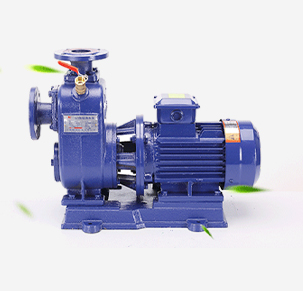English
- Afrikaans
- Albanian
- Amharic
- Arabic
- Armenian
- Azerbaijani
- Basque
- Belarusian
- Bengali
- Bosnian
- Bulgarian
- Catalan
- Cebuano
- Corsican
- Croatian
- Czech
- Danish
- Dutch
- English
- Esperanto
- Estonian
- Finnish
- French
- Frisian
- Galician
- Georgian
- German
- Greek
- Gujarati
- Haitian Creole
- hausa
- hawaiian
- Hebrew
- Hindi
- Miao
- Hungarian
- Icelandic
- igbo
- Indonesian
- irish
- Italian
- Japanese
- Javanese
- Kannada
- kazakh
- Khmer
- Rwandese
- Korean
- Kurdish
- Kyrgyz
- Lao
- Latin
- Latvian
- Lithuanian
- Luxembourgish
- Macedonian
- Malgashi
- Malay
- Malayalam
- Maltese
- Maori
- Marathi
- Mongolian
- Myanmar
- Nepali
- Norwegian
- Norwegian
- Occitan
- Pashto
- Persian
- Polish
- Portuguese
- Punjabi
- Romanian
- Russian
- Samoan
- Scottish Gaelic
- Serbian
- Sesotho
- Shona
- Sindhi
- Sinhala
- Slovak
- Slovenian
- Somali
- Spanish
- Sundanese
- Swahili
- Swedish
- Tagalog
- Tajik
- Tamil
- Tatar
- Telugu
- Thai
- Turkish
- Turkmen
- Ukrainian
- Urdu
- Uighur
- Uzbek
- Vietnamese
- Welsh
- Bantu
- Yiddish
- Yoruba
- Zulu
Telephone: +86 13120555503
Email: frank@cypump.com
Nov . 05, 2024 21:38 Back to list
submersible sewage pump
Understanding Submersible Sewage Pumps Essential for Wastewater Management
Submersible sewage pumps are vital components in modern wastewater management systems, particularly in residential, commercial, and industrial settings. Designed to function underwater, these pumps efficiently handle liquid waste, including sewage, stormwater, and other effluents, ensuring a safe and hygienic environment.
One of the primary advantages of submersible sewage pumps is their ability to operate submerged, eliminating the need for a separate pump sump. This design not only saves space but also reduces the risk of pump cavitation, which can occur when pumps are exposed to air. The submersible nature allows these pumps to work at greater depths, making them ideal for areas with high groundwater levels or where gravity drains are impractical.
Submersible sewage pumps boast several critical features that enhance their performance and reliability. Most of these pumps are equipped with durable materials, such as cast iron or stainless steel, to resist wear from abrasive solids and corrosive substances. Additionally, many models come with a built-in float switch that automatically activates the pump based on the fluid level, ensuring efficient operation without manual intervention.
submersible sewage pump

When selecting a submersible sewage pump, it is essential to consider factors such as flow rate, total dynamic head (TDH), and the specific type of waste to be handled
. Different pumps are designed to manage varying types of waste, including those with larger solids. Therefore, understanding the operational requirements of the pumping application is crucial for optimal performance.Regular maintenance is also key to prolonging the life of submersible sewage pumps. Users should periodically inspect the pumps for wear and tear, ensuring that the impellers and seals remain in good condition. Proper maintenance not only enhances efficiency but also prevents unexpected failures that can lead to costly downtime.
In conclusion, submersible sewage pumps play an essential role in effectively managing wastewater. Their ability to operate underwater and handle various types of waste makes them indispensable in today’s infrastructure. By understanding their features and maintenance needs, users can maximize the performance and longevity of these crucial systems, ultimately contributing to a cleaner and more sustainable environment.
-
Horizontal Split Case Pump with GPT-4 Turbo | High Efficiency
NewsAug.01,2025
-
ISG Series Pipeline Pump - Chi Yuan Pumps | High Efficiency, Durable Design
NewsAug.01,2025
-
Advanced Flue Gas Desulfurization Pump with GPT-4 Turbo | Durable & Efficient
NewsJul.31,2025
-
ISG Series Vertical Pipeline Pump - Chi Yuan Pumps | Advanced Hydraulic Design&Durable Construction
NewsJul.31,2025
-
ISG Series Vertical Pipeline Pump - Chi Yuan Pumps | Energy Efficient & Low Noise
NewsJul.31,2025
-
pipeline pump - Chi Yuan Pumps Co., LTD.|High Efficiency&Low Noise
NewsJul.31,2025










